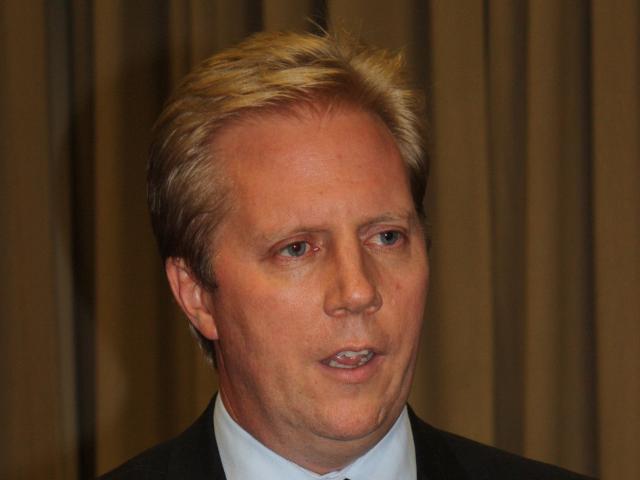
The former TPP was thought to have died when United States President Donald Trump honoured a campaign promise and decided the trade agreement was not for him.
However, Mr McClay is touring the remaining 10 countries continuing to talk up the agreement. And, in a way, there is much for New Zealand to still gain with a revised TPP which includes Canada, Japan and other Asian and South American countries.
Last week, Messrs McClay and English were celebrating the signing of the Pacer Plus trade agreement between New Zealand and Pacific Island nations.
New Zealand and Australia are the largest sources of tourists for Pacific Island countries and, collectively, the two countries buy more from the Pacific Island countries than any other nation. Australia and New Zealand are also the source of some of the most significant investors in the Pacific Islands.
Before the island-hopping trip last week by Mr English, questions were being asked about what benefits there were in the visits.
Taking a wider view, there is competition between China and Taiwan for ascendancy in the Pacific. Money is no object as the two countries try to buy the friendship of countries such as Tonga and Samoa.
Although Mr McClay says the Pacer deal is not about competing or about winners and losers, the agenda must be seen as keeping the Pacific Islands tied to New Zealand, in particular.
The Pacific Island trade agreement is about shared prosperity and encouraging economic development in Pacific nations. It is regarded as a world-class trade and development agreement.
Trade is hugely important to countries like New Zealand and those in the Pacific. China is pouring money into infrastructure without much thought about trade.
If New Zealand can secure solid trading agreements, the encouragement is there for Pacific Island governments to remain more self-sufficient, while retaining important ties to New Zealand through trade.
Mr McClay recognises New Zealand also relies heavily on trade for its economic success and for that reason he has shrugged off the disappointment and continued to push for an international trade agreement in which New Zealand features highly.
More challenging will be how Mr McClay deals with Washington where he heads soon to meet new US Trade Representative Robert Lighthizer, Commerce Secretary Wilbur Ross and key members of Congress. He will also speak at NZ-US business functions.
Mr Lighthizer has only been in the job for a month and Mr McClay getting to meet early provides some hope for New Zealand's trade prospects.
America accounts for more than $16billion in two-way trade. It is the biggest market for beef and wine and second-largest marker for dairy.
Mr McClay says he will be highlighting the strength of the bilateral relationship, the importance of continued New Zealand-US co-operation and leadership on trade in the Asia-Pacific and New Zealand's co-operation in the World Trade Organisation against barriers to trade.
With Mr Trump still fighting claims and counterclaims about his Administration, five months after he took office, New Zealand needs to look at the next tier for support on issues like trade.
The US President is a big-picture thinker, saving American jobs by threats and intimidation. However, trade is just as important for America as it is for the rest of the world. Consumers are used of having a choice of lower-priced articles imported from Asia. Driving up their costs will not be a popular policy in the US, even for Mr Trump.
Mr McClay will continue to circle the globe before the election, selling New Zealand's tale of trade, pushing the case for better deals for the country's producers. Free trade is the lifeblood of the economy and opportunities should not be ignored.












